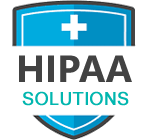
HIPAA Compliance for Medical Professionals
HIPAA compliance is crucial for healthcare providers to protect sensitive patient information. Not only is it a legal requirement, but it also builds trust with patients and enhances the reputation of medical professionals. In this article, we will discuss everything medical professionals need to know about HIPAA compliance.
What is HIPAA Compliance?
HIPAA (Health Insurance Portability and Accountability Act) compliance is a set of rules and regulations that govern the security and privacy of protected health information (PHI). HIPAA compliance is mandatory for all healthcare providers, including medical professionals, hospitals, and insurance companies. The law’s purpose is to ensure the privacy and security of patients’ health information and to provide them with certain rights related to their data.
Why is HIPAA Compliance Important for Medical Professionals?
HIPAA compliance is essential for medical professionals for several reasons. Firstly, it ensures the protection of sensitive patient data, including personal and medical information. Medical professionals have access to this data and must keep it secure to prevent breaches or unauthorized access.
Secondly, non-compliance with HIPAA regulations can result in severe consequences, including hefty fines and reputational damage. The penalties for non-compliance can range from $100 to $50,000 per violation, with a maximum penalty of $1.5 million per year.
Lastly, HIPAA compliance is necessary for building trust and credibility with patients. By adhering to HIPAA regulations, medical professionals demonstrate their commitment to protecting patient privacy and safeguarding their sensitive information.
How to Achieve HIPAA Compliance?
Achieving HIPAA compliance involves implementing several measures to ensure the protection of patient data. These measures include:
- Conducting regular risk assessments to identify vulnerabilities and threats to patient data security.
- Developing and implementing policies and procedures for data security and privacy.
- Providing regular training to employees to ensure they understand HIPAA regulations and their responsibilities in protecting patient data.
- Ensuring that all third-party vendors who handle patient data are HIPAA compliant.
- Regularly reviewing and updating security measures to ensure they are up to date with the latest industry standards.
HIPAA Compliance Checklist for Medical Professionals
To ensure HIPAA compliance, medical professionals need to follow specific guidelines and protocols. Here’s a comprehensive HIPAA Compliance Checklist for Medical Professionals that will help them adhere to the rules and regulations:
- Conduct a HIPAA Risk Assessment: The first step in HIPAA compliance is to assess your organization’s security risks. Identify potential vulnerabilities, assess the likelihood of risks, and determine the impact of a breach on your patients’ confidential information.
- Develop HIPAA Policies and Procedures: Create policies and procedures that outline how you’ll safeguard patients’ confidential information. These policies should be detailed and include specifics on how you’ll handle security incidents, access controls, and data backup and recovery.
- Train Staff on HIPAA: All staff members who handle patients’ confidential information should receive HIPAA training. This training should include an overview of HIPAA regulations, your organization’s policies and procedures, and specific examples of how to handle patients’ confidential information.
- Secure Patient Information: Implement physical and technical safeguards to protect patient’s confidential information. These safeguards should include secure data storage, encryption, and access controls.
- Conduct Regular HIPAA Audits: Regularly audit your organization’s HIPAA compliance to identify and address any vulnerabilities or weaknesses in your security protocols.
HIPAA compliance is essential for medical professionals who handle patients’ confidential information. By following the above checklist, you can ensure that you’re adhering to HIPAA regulations and safeguarding your patients’ privacy and security. Remember that HIPAA compliance is an ongoing process that requires regular assessments, audits, and staff training.
Overall, creating a comprehensive HIPAA compliance plan is critical to protecting your patients’ privacy and avoiding any legal or financial consequences. By following the guidelines outlined in this checklist, you can ensure that your organization is HIPAA compliant and provides the highest level of patient care.




